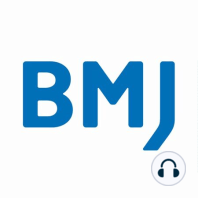12 min listen
Physical activity level and prognosis in patients with coronary heart disease
FromHeart podcast
ratings:
Length:
12 minutes
Released:
Aug 4, 2014
Format:
Podcast episode
Description
Extensive research has established that physical activity is inversely associated with the risk of developing cardiovascular disease in healthy adults. In patients with manifest cardiovascular disease, current clinical practice guidelines recommend encouraging patients to undertake daily moderate intensity physical exercise for secondary prevention.
While such recommendations are based on numerous clinical trials clearly showing that exercise-based cardiac rehabilitation improves prognosis in heart disease patients, only a few prospective studies have examined the potential benefit of physical activity in clinical practice under real-life conditions.
A recent Heart paper investigates the association of leisure time physical activity level with prognosis in a cohort of patients with coronary heart disease. Lead author Ute Mons, Division of Clinical Epidemiology and Aging Research, German Cancer Research Center, discusses what they found.
Read the full paper:
http://goo.gl/gDHlH2
While such recommendations are based on numerous clinical trials clearly showing that exercise-based cardiac rehabilitation improves prognosis in heart disease patients, only a few prospective studies have examined the potential benefit of physical activity in clinical practice under real-life conditions.
A recent Heart paper investigates the association of leisure time physical activity level with prognosis in a cohort of patients with coronary heart disease. Lead author Ute Mons, Division of Clinical Epidemiology and Aging Research, German Cancer Research Center, discusses what they found.
Read the full paper:
http://goo.gl/gDHlH2
Released:
Aug 4, 2014
Format:
Podcast episode
Titles in the series (100)
Interpreting the ECGs of airline pilots: Iain Simpson (vice president for Education and Re… by Heart podcast
